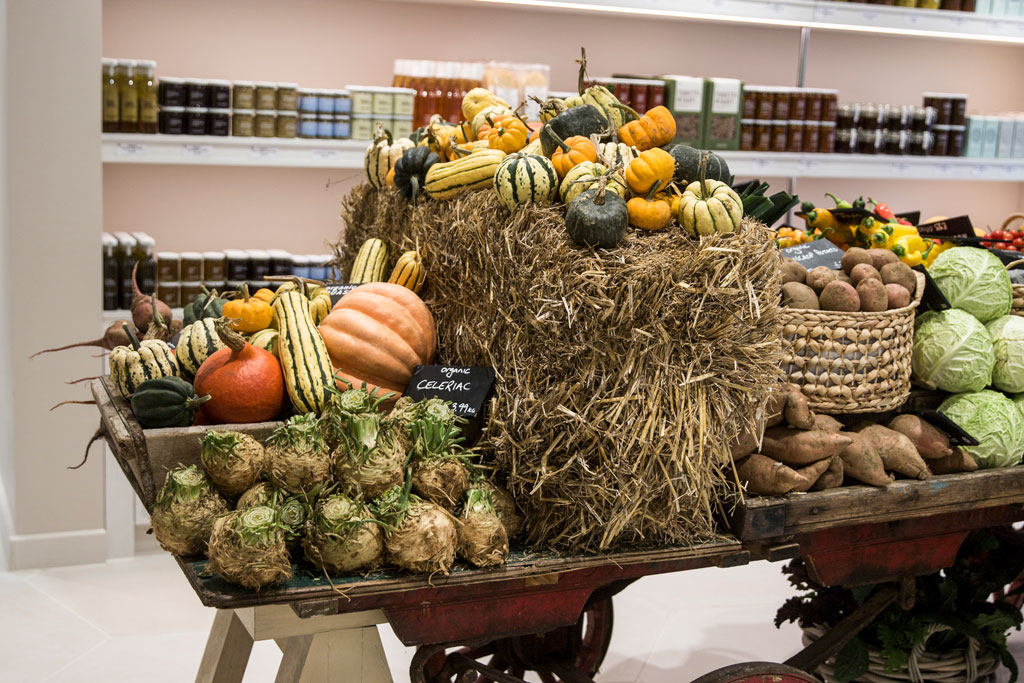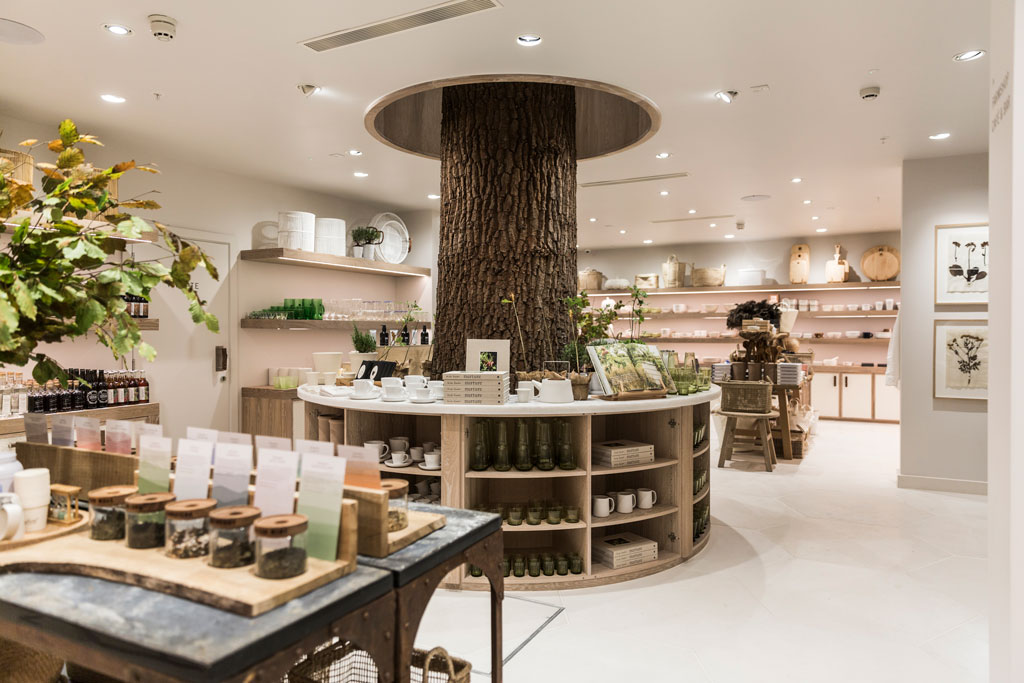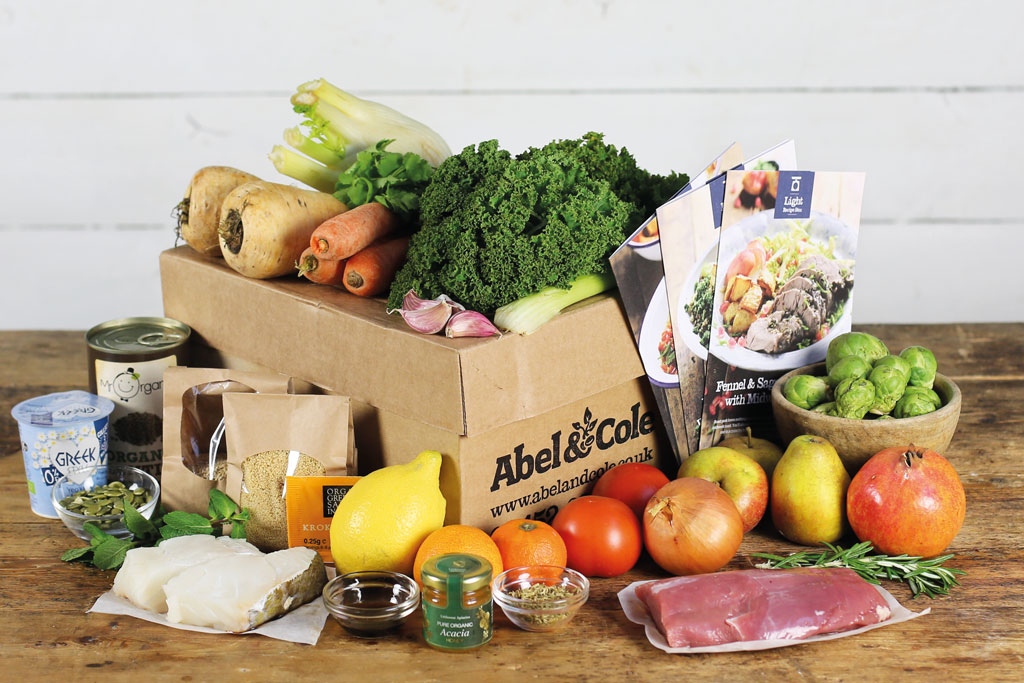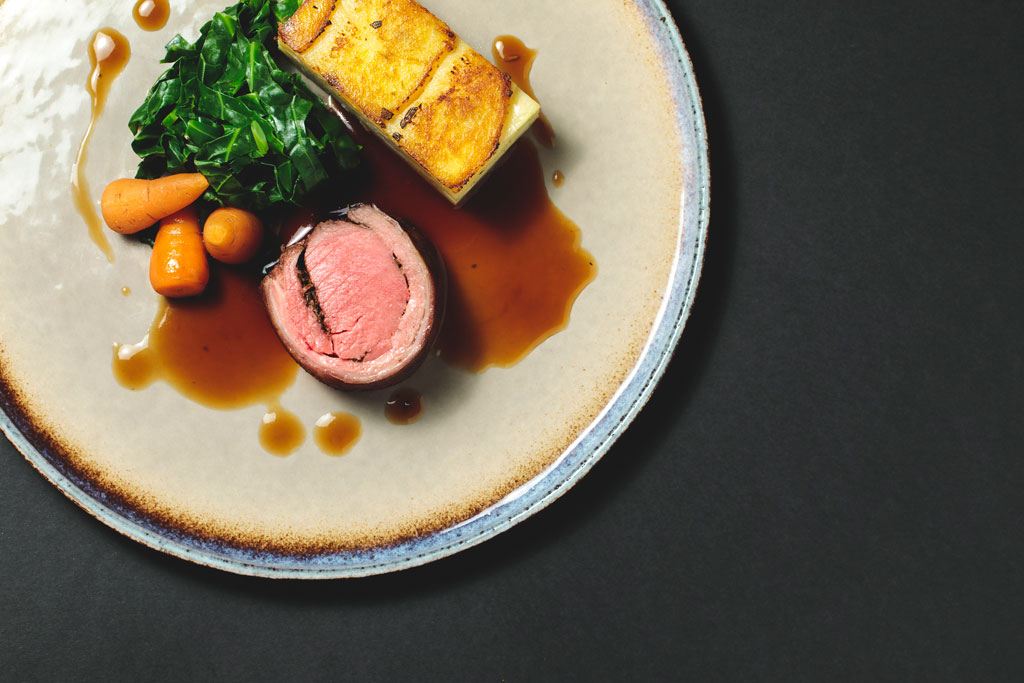Sustainability In Food: A Guide
Eating for the future
This post may contain affiliate links. Learn more
Looking for tips on sustainable dining? We chat to chefs and representatives from some of the most eco-friendly food spots in the country to learn more about sustainability in food, and how we can make a difference from our own kitchen.
Daylesford
A sustainable farm with restaurants, farm shops and cafes across the country
Antony Ely, Executive Chef
Daylesford was set up in 2002 by Carole Bamford, with a vision that she wanted an organic farm with sustainability at its forefront. Back then everyone thought she was bonkers, but now lots of people are trying to do the same. People who work at Daylesford have to get the Daylesford vision – it’s what the company has been built on.
We work off the rhythms of the farm. We change our menus with the seasons and we’re about 98 per cent organic, bar a couple of things like wild garlic and some fish. Plastic in our shops is a no-no – we have de-listed products in our shops because of packaging. Everything that comes from the farm to our restaurants is sent in crates which we re-use. Boxes are broken down, flat-packed and brought up to the farm where we burn it for sustainable energy using our biomass boiler. Our London stores have food waste containers which go back to the recycling hub where it’s used for compost, and we’re looking at getting an anaerobic digester which breaks down food scraps for compost.
Our biggest issue is coffee cups. We’ve managed to get recyclable paper lids but the cup is a struggle, it’s a nut we’re still trying to crack. Our paper lids are not very nice on the lips, but they’re good for the environment and recycling.
Top tips?
- Try to practise conscious consumption. You don’t have to stop eating meat, but try to eat less meat and always buy organic. Make plants the centrepiece and add meat as a treat.
- Make food go further. If you have a chicken that would classically serve four, make it serve eight – and don’t throw any in the bin. Use it for something else and be clever.
- Don’t buy food and not eat it: make meal plans and work out what you’re going to eat each week.
- Set up a compost bin. If you’ve got any scraps of food don’t chuck it in landfill, put it in the garden.
Abel & Cole
An organic food delivery service
Hannah Shipton, Managing Director
We work with our key suppliers ahead of the planting season to plant crop for the coming year – this reduces waste because farmers have a better idea of what our requirements are. We also don’t set the same cosmetic standards that other retailers expect, again reducing the need for our farmers to over-produce in pursuit of that unnecessarily perfect veg. We have flexibility with our veg boxes and our recipe boxes to ensure we use as much of the crops which come into us, we can also flex this if we know our farmer has a glut of something we may be able to find a home for. We’re big on seasonality and encourage people to shop seasonally, ensuring when we have a crop available to us we drum up as much demand for it as possible.
While we always seek to stop waste at its source there is some we naturally can’t avoid, so any unavoidable wastage is cooked up for our lunches here at Abel & Cole HQ, or donated to City Harvest and other local food charities, where it goes to supply soup kitchens and shelters in need. What little is left goes to a local pig farm, but this is a rare treat for them! Zero food waste goes to landfill.
We’ve always tried to apply a more sustainable approach to everything we do, from resequencing our delivery rounds every day to minimise time on the road and emissions to replacing polystyrene with sheeps’ wool to keep our chilled boxes cold. We were recently awarded B Corp status with zero changes to the business, which brought it home that we’ve always been on the right track.
Our customers trust us to help them shop more ethically, but with the sustainability landscape constantly changing it’s important to bear in mind there’s always a better way of doing something, so we’re continually challenging ourselves to do better. For example, we’ve used boxes not bags since day dot. In just the last 13 years alone we’ve saved about 60,000,000 plastic bags by delivering food in reusable and recyclable card boxes instead. We carried out a survey last year on fruit and veg packaging, comparing like for like fruit and veg from a supermarket to Abel & Cole and, measured by weight, we had 71 per cent less plastic in our delivery.
Top tips?
- Buying organic is the easiest way to reduce the environmental impact of your food, as well as ensuring the highest levels of animal and worker welfare. This isn’t just a label anyone can use – there’s a rigorous certification process to go through and laws to uphold it.
- By shopping with Abel & Cole people know they’re reducing the packaging their food comes in, and using our delivery model to ensure their food is delivered in the most energy-efficient way we can. We encourage people to get creative and challenge themselves to use everything they can to make sure they’re not wasting good food.
George’s Kitchen
A private catering company based in West London working to become more sustainable and environmentally conscious
George Rouse, Chef & Founder
We endeavour to work with suppliers who are focused on sustainability as an issue. To save waste we tell all our suppliers not to bother wrapping anything, and we donate food we don’t use to a homeless charity in London. We’re in the process of becoming a member of the SRA (Sustainable Restaurant Association) – I want sustainability at the forefront of our company. We haven’t nailed it on the head yet but I intend to. It’s very important to look at the issues now, it’s only going to get worse so whatever we can do to eliminate waste is a good thing. With fish, we always try to use fish which you can easily get without the air miles. We’ve got an abundance of mackerel, and there’s a lot more cod in the UK waters than there was a few years ago. With poultry and eggs, we make sure everything is organic and free-range.
Top tips?
- Always look at the packaging when buying fish and meat to make sure it has been bought from local areas – it should always have the region or shore it’s come from.
- Don’t use plastic bags when buying fruit and vegetables, and avoid buying vegetables like broccoli wrapped in cellophane.
- It’s obvious, but always remember your bags for life.
Poco Tapas
A trendy tapas bar in Bristol which was crowned Sustainable Restaurant of the Year in 2016
Jennifer Best, Director
We source ingredients within about a 50-mile radius of the restaurant and have personal relationships with our suppliers. In terms of the environment we’re very hot on recycling our waste, and we monitor what’s going in the general waste bins – which is very minimal – and try to reduce it. We send so little to landfill but I do find it hard to get the point of absolute zero waste.
We’re also trying to connect more with our community and we’re setting up an action hub for the Chefs’ Manifesto, an organization connected with the World Food Programme. They have hubs all over the world and we’re creating one in Bristol to help reinforce the city’s already quite strong chef network and bring people together to focus on some of the key food issues.
It was very much the reason we started it in the first place. We looked at the restaurant business nearly eight years ago and realised it was hugely wasteful and doing the world more damage than it was good. So we decided we buck the trend of waste and hopefully work to fix some of those broken systems within the food industry.
Top tips?
- Get creative, those things you usually throw away (like the tops of leeks/tops of spring onions) you can throw into an eggy brunch on the weekend.
- Get used to buying in a whole chicken instead of pre-packaged parts of the meats. You can make a stock with the leftover carcass.
- Getting used to appreciating the whole vegetable and the whole animal.




